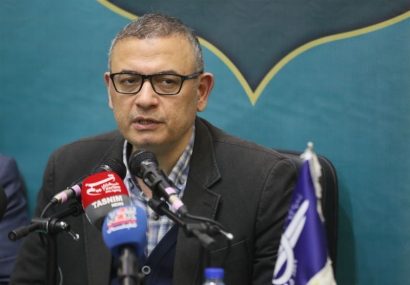Iran Suspends Flights to Syria Until January 22
TEHRAN (Iran News) Pourfarzaneh emphasized the importance of the Chicago Convention, an international agreement aimed at enabling countries to benefit from global aviation. As a long-standing signatory, Iran remains committed to this treaty, which mandates member states to prioritize flight safety and security. To achieve these standards, Iran focuses on both software and hardware aspects, encompassing personnel training, fleet maintenance, and modernization.
The CAO head underlined the role of a specialized unit in ensuring flight security. This unit handles inspections and quality control, which are integral to maintaining operational standards. Pourfarzaneh acknowledged that political challenges have added unique responsibilities for Iran, including fostering domestic design and manufacturing capabilities—a stark contrast to many countries that rely on international giants like Boeing and Airbus.
Pourfarzaneh lamented the financial constraints facing Iran’s aviation sector, particularly the inability to access global financing and insurance models. He warned that neglecting this industry could lead to its collapse, as aviation is not merely a luxury but a cornerstone of national development. Each decommissioned aircraft, he noted, disrupts connectivity within the country and to the rest of the world.
In response to these challenges, the CAO has prioritized localized production and repair. While international collaborations were robust before the revolution, sanctions have compelled Iran to address these issues domestically. Despite these hurdles, Pourfarzaneh reaffirmed the commitment to maintaining safe and secure flights.
Sanctions imposed on Iran, particularly by the European Union, have severely impacted the aviation sector. Pourfarzaneh criticized these measures for hindering access to critical supplies like medicines, calling them a violation of human rights and the Chicago Convention. Following these sanctions, Iran filed formal complaints against the entities responsible.
He highlighted that over 400 knowledge-based companies are now actively working in aircraft maintenance and parts manufacturing within Iran. While the CAO aims to upgrade its fleet with modern aircraft from global manufacturers, domestic production remains a contingency plan should international avenues remain blocked.
Pourfarzaneh addressed questions about the government’s claim to have imported 100 aircraft during the current administration’s three years in office. He clarified that while 100 airframes, including light planes, heavy aircraft, and helicopters, were acquired, 75 of these were passenger planes. Out of these, 45 are currently operational. Some were procured for spare parts, while others require several months of checks before becoming flight-ready.
Discussing international flight routes, Pourfarzaneh announced that flights to Syria have been suspended until January 22, pending approval from Syrian authorities. However, flights to Lebanon have resumed, and discussions are ongoing regarding potential routes to Egypt, which would require mutual agreements between the two nations.
Pourfarzaneh also noted that during periods of heightened tensions in Syria, Iranian flights continued under special permits, demonstrating the country’s commitment to maintaining connectivity despite challenges.
Despite facing numerous obstacles, Pourfarzaneh concluded that Iran remains steadfast in its efforts to preserve and grow its aviation industry. The priority is to procure aircraft from reputable international companies while simultaneously strengthening domestic capabilities to ensure the industry’s sustainability.
- source : IRAN NEWS ECONOMIC DESK






























